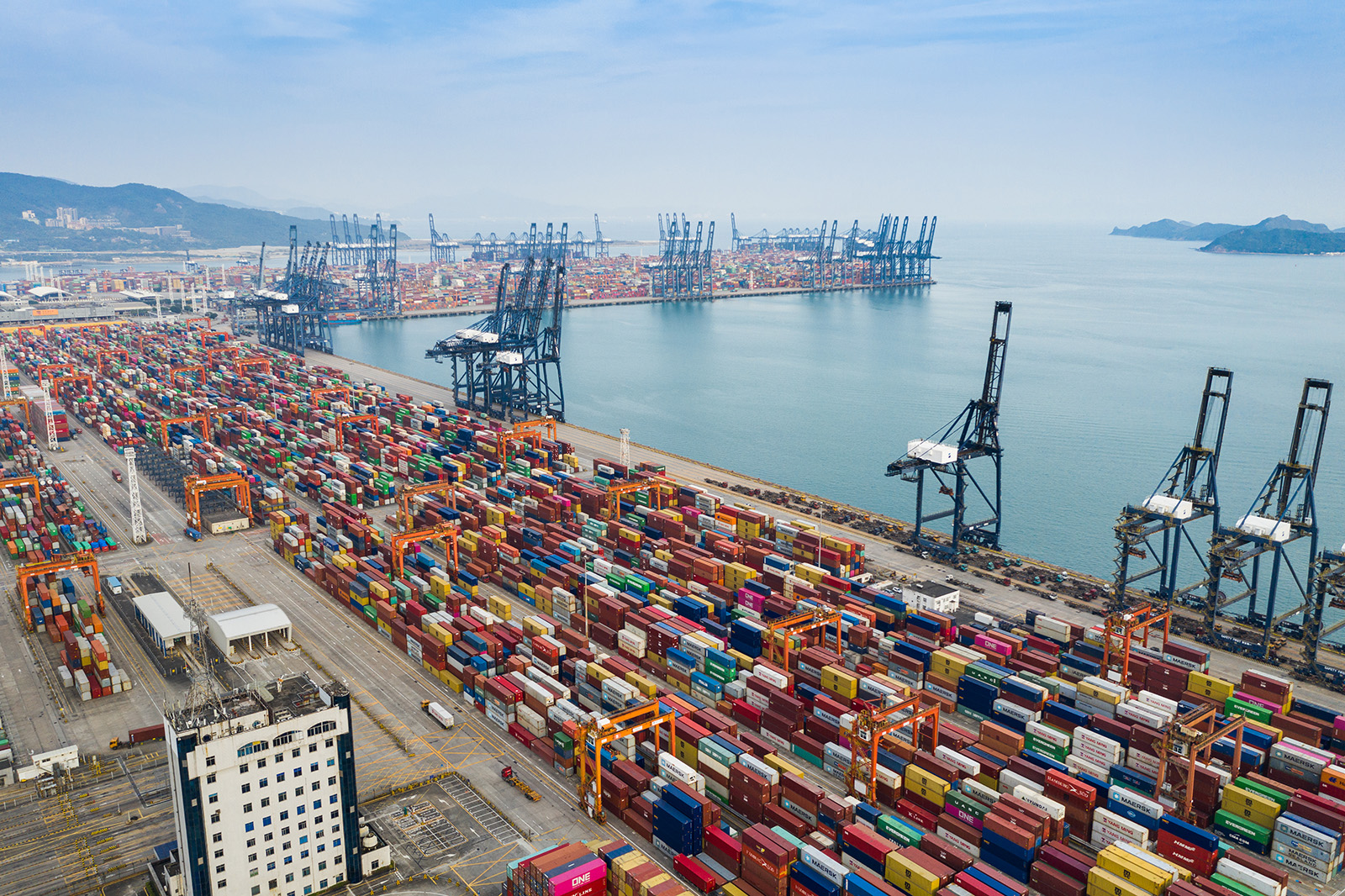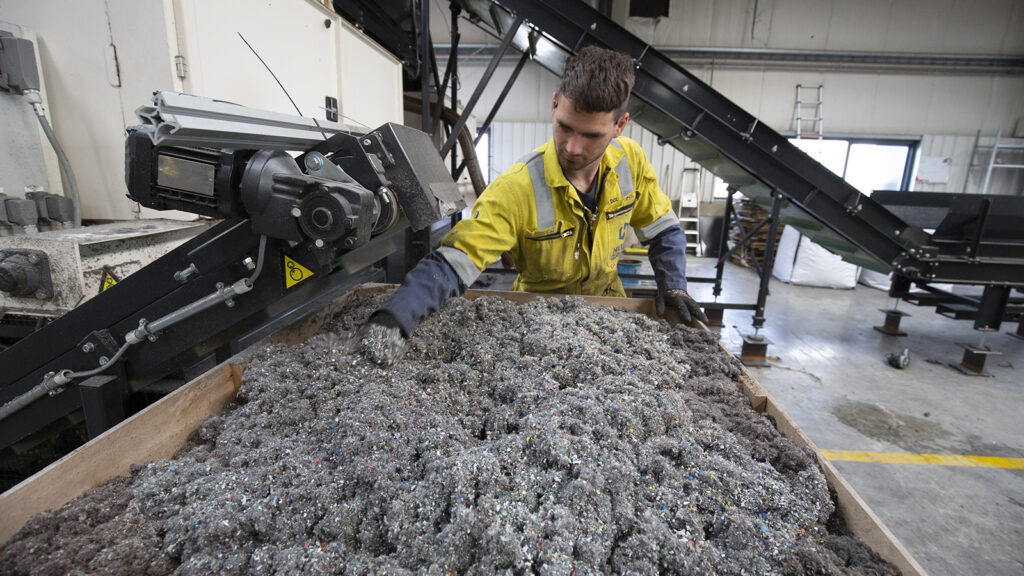
Trade goods sit in a container port in Shenzhen, China. As free trade falls out of favor with one crisis after another, regional integration through trade is gaining popularity.
Photo: Getty Images
Trade disputes, economic uncertainty and a growing income gap have stoked a global protectionist fire. Nationalist parties across the world have flourished on the coattails of a trade-unfriendly agenda, while the Trump administration’s anti-trade agenda has proven difficult to reverse. In the last few years, the U.S. has left the Trans-Pacific Partnership and seen an average 25% tariff imposed on goods produced in China.
This week, Altamar’s team of Muni Jensen and Peter Schechter spoke to Chad Bown, senior fellow at the Peterson Institute for International Economics, to examine the changing state of global trade.
Regional Agreements Are Gaining Momentum
“Regional integration through trade is obviously not new, and it’s kind of had a mixed track record in and of itself,” says Bown. The most successful story of regional integration, of course, is the European project. It’s also been a success story in East Asia over the last 30 to 40 years. The question is: Could it be something that helps push Africa forward?
“The Biden administration loves this new agreement with Mexico and Canada, the USMCA, because it has this ability to rapidly enforce labor standards, violations or concerns — in Mexico, especially. So, if a union can’t, or if workers can’t organize into a union in Mexico at a plant, you can bring a dispute against them and … get it resolved almost immediately. I think in some ideal world, they would want to extend this model to many countries in the rest of the world. Most countries in the rest of the world are not particularly reliant on the United States in the same way that Mexico is. So, I’m not sure we have that kind of leverage. But they’re workshopping the idea in this new Indo-Pacific economic framework that they’re engaging with, with many countries in East and South Asia.
“The concept of free trade falls in and out of favor quite frequently, but overall, Bown is fairly optimistic about trade and globalization. “I’ve been doing professional trade for close to 25 years, and every few years, it comes and goes. With the exception of the U.S. under Trump, and the U.K. during Brexit, the rest of the world has continued to go ahead with normal trade. In many instances, [regions] are actually integrating more deeply. So, I don’t think it’s a uniform story.”
Free trade allows access to more goods from abroad, introduces more competition, which lowers prices. So, if you were to take that away, what would it mean? Well, prices would go up.
Peter Schechter asks him about the underlying causes of protectionist trends in the U.S. and the U.K. Bown explains, “There are a number of factors at play, clearly. I think in the United States and in the U.K., domestic politics have played a really big role. [Former] President Trump, especially, was really skilled at playing up the fear of all things foreign. … The U.K. had similar stories with fear of migrants and loss of control to Brussels.”
Bown says the crisis with Russia has raised concerns in the United States of being overly reliant on China. “We’re seeing with Russia’s invasion of Ukraine some of those theoretical concerns about what can happen if you become overly dependent on a certain country that may not necessarily be reliable, stable or have ulterior motives — [it] can come back and bite you. We are seeing in real time this play out with respect to Russia and Europe when it comes to energy.”
Free Trade Helps Keep Down Inflation
Free trade is based on the idea that even though some people lose, society as a whole benefits from the free exchange of goods and services. “Any change in policy does have distributional implications. We need to be clear about who the winners and losers are going to be. If the losers are large, talk about compensation and other things that we might need to do,” he noted.
But one big positive is the impact on inflation. “At the moment, in the United States, certainly the biggest economic issue is inflation, higher prices. Free trade allows access to more goods from abroad, introduces more competition, which lowers prices. So, if you were to take that away, what would it mean? Well, prices would go up,” he explains.
Bown is uncertain about the future of nearshoring. He explained, “In the United States, we now have [about] 25% tariffs on roughly two-thirds of imports from China. That is going to create economic incentives for some of these supply chains to relocate themselves. But the question is: Is that going to be fully broken and more stuff moved to Central/Latin America, or will things just sort of reallocate themselves across East Asia?”
Are Consumers Willing to Pay for Fair Trade?
Fair trade is used loosely to denote a supply chain that treats resources and labor “fairly.” “It ultimately boils down to how much more are consumers willing to spend to pay for trade that might have certain attributes,” Brown notes. “We don’t like Russia because they’re, you know, non-democratic, they invade other countries. We don’t want to trade with them. Okay. Well, if it’s going to be, how much are we willing to pay to not like them?
“If we want to ensure that our goods are being manufactured or something by workers that have the ability to collectively organize into unions, how much are we willing to pay for that? I would like to think that consumers are willing to pay more for these attributes. But also at the same time, I’m not optimistic, given how up in arms they are at the moment when they’re actually being confronted with rising prices in real time here in the United States.
“We do have work to do to improve transparency into supply chains. Forcing companies to track this, to set up accounting systems, and auditing systems, to ensure that this doesn’t happen — it doesn’t come for free. It’s going to cost money. Consumers need to be willing to pay for it, but hopefully, they will.”






